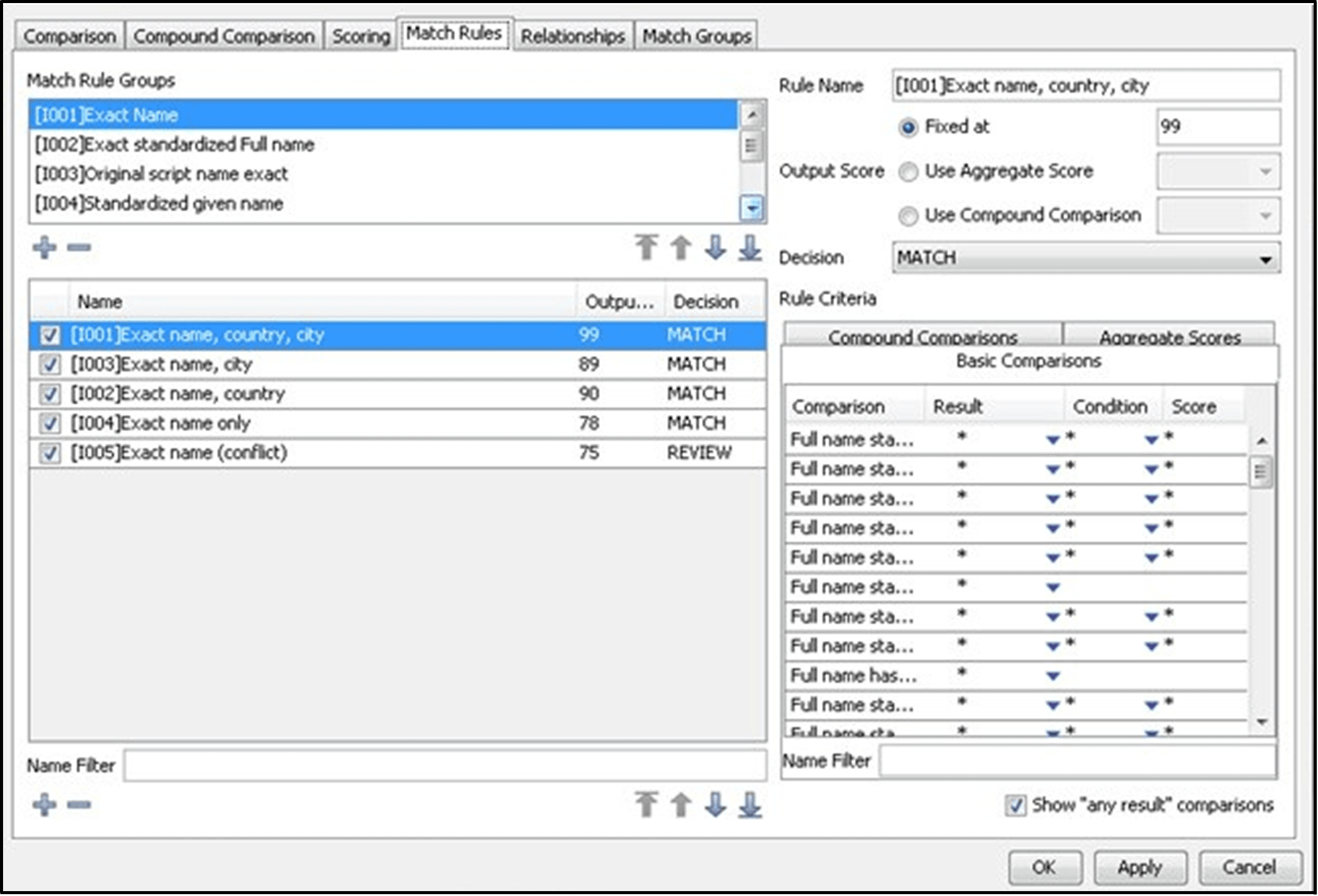Match Rules
There are several different types of match rule involved in the name and address screening:
TBAML includes the following name and address screening match rules:
- The name matching rules: These are organized by the level of name match, with the
strongest name matching rules placed at the top of the decision table.
The last rule in each set is a 'conflict' rule, and in many cases will be disabled by default. These rules allow records which fulfill the specified level of name match but have conflicting supporting data fields indicating that a true match is unlikely.
Note:
This means that the match rules are not ordered by strength across all identifiers. For example, a weaker name match that is strengthened by matches on city and country is likely to be a stronger overall match than a strong name with strongly contradictory data in the other fields. - The loose name matching rules: These are also based around name matching, but identify looser matches and are not enabled by default. These rules are likely to result in a large number of false positive matches and are most likely to be of use when screening against sanctions lists, where it is important that no true matches are missed.
For the sake of clarity, match rules are divided into groups. As each group
is selected, the match rules it contains are displayed in the Match Rules tab:
The priority of the groups can be changed using the arrows below the Match Rules Group
list. When a group is highlighted:
- Click
 to move it up one place in the list.
to move it up one place in the list.
- Click
 to move it down one place in the list.
to move it down one place in the list.
- Click
 to move it to the top of the list.
to move it to the top of the list.
- Click
 to move it to the bottom of the list.
to move it to the bottom of the list.
The remainder of this section describes the matching rules that are present in TBAML in greater detail.
